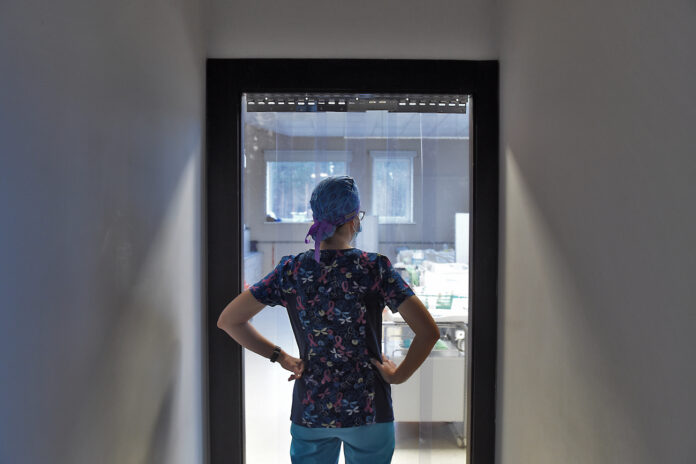If additional funds demanded by doctors for raising medical staff salaries are not found, it will look as if someone wants to turn Latvia into a well-guarded cemetery, said Valdis Keris, Chairman of the Latvian Health and Social Care Workers’ Trade Union (LVSADA), in an interview with Latvian Television’s Rīta panorāma.
“I doubt that would be the right path,” he remarked.
Keris predicted that future talks on this issue would be complicated. At the same time, he stressed that the union is only asking to maintain current pay at a competitive level, nothing more.
According to him, the sector’s minister understands these demands and recognizes them as fair. LVSADA has also addressed parliamentary factions, urging them to follow the European Commission’s recommendation to increase funding not only for defense but also for healthcare, in order to strengthen competitiveness, sustainability, and social fairness.
“Of course, we understand the complexity of the situation, but on the other hand – the state budget expenditures amount to around 18 billion, and within this amount, it is absolutely possible to find the necessary resources for healthcare,” Keris insisted.
As reported,
LVSADA is demanding at least a 13.5% pay increase for healthcare workers,
Keris told LETA last week following talks with the Ministry of Health. This request is 1.5 percentage points lower than the original demand of 15%, but still requires an additional 133 million euros from the budget.
The union will now wait until its the 16th of September meeting for the government’s response and actions regarding this demand, after which further steps will be considered. The chairman did not rule out the possibility of initiating a pre-strike procedure if demands are not met, although he said it was still “too early to speculate about such a scenario.”
Speaking on Rīta panorāma today, Health Minister Hosams Abu Meri admitted he is very skeptical about the Ministry of Health receiving the additional 133 million euros in next year’s budget. According to him, one must be honest and recognize that such a sum for healthcare is unrealistic, given that the total amount available for distribution might be just over 150 million euros, with many competing needs across various sectors, including demographics and education.
However,
if fiscal space emerges that could be directed toward raising medical staff salaries,
priority could be given to increasing the lowest wages, especially for nurses, who currently earn less than the EU average. Still, the minister could not yet promise even this partial concession, reminding that last year an agreement was reached that the remuneration fund may not grow by more than 2.6%.
“Therefore, it is very difficult to talk about salaries right now. The government is aware of this. The demands are also public, as we had a meeting with the union last week, and we agreed that wages must continue to rise, because we live in an increasingly unsafe world. We need medical staff to be available everywhere, not just in Riga and larger cities, and we see the so-called ‘poaching’ of human resources from one country to another,” Abu Meri said.
Asked how much could be saved by making the healthcare system more efficient internally, the minister replied that at best it could amount to 10–15 million euros annually – but even that would require investments, for example, in digitalization.
Read also: Women in Lithuania earn 10% less than men; ombud calls for improvement
